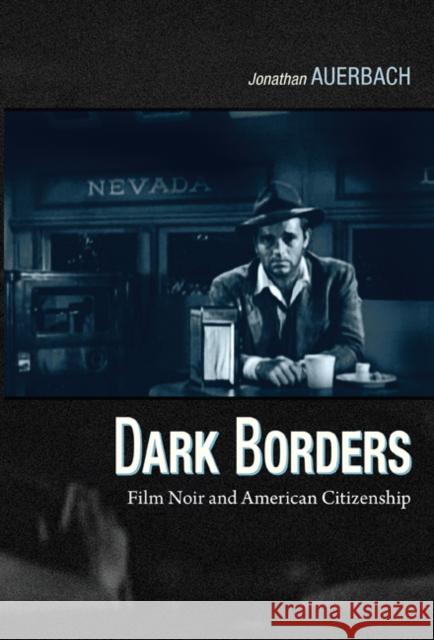Dark Borders: Film Noir and American Citizenship » książka
Dark Borders: Film Noir and American Citizenship
ISBN-13: 9780822349938 / Angielski / Twarda / 2011 / 268 str.
Dark Borders: Film Noir and American Citizenship
ISBN-13: 9780822349938 / Angielski / Twarda / 2011 / 268 str.
(netto: 438,46 VAT: 5%)
Najniższa cena z 30 dni: 440,04
ok. 30 dni roboczych.
Darmowa dostawa!
"Dark Borders" connects anxieties about citizenship and national belonging in midcentury America to the sense of alienation conveyed by American film noir. Jonathan Auerbach provides in-depth interpretations of more than a dozen of these dark crime thrillers, considering them in relation to U.S. national security measures enacted from the mid-1930s to the mid-1950s. The growth of a domestic intelligence-gathering apparatus before, during, and after the Second World War raised unsettling questions about who was American and who was not, and how to tell the difference. Auerbach shows how politics and aesthetics merge in these noirs, whose oft-noted uncanniness betrays the fear that "un-American" foes lurk within the homeland. This tone of dispossession was reflected in well-known films, including "Double Indemnity," "Out of the Past," and "Pickup on South Street," and less familiar noirs such as "Stranger on the Third Floor," "The Chase," and "Ride the Pink Horse." Whether tracing the consequences of the Gestapo in America, or the uncertain borderlines that separate the United States from Cuba and Mexico, these movies blur boundaries; inside and outside become confused as (presumed) foreigners take over domestic space. To feel like a stranger in your own home: this is the peculiar affective condition of citizenship intensified by wartime and Cold War security measures, as well as a primary mood driving many midcentury noir films.











